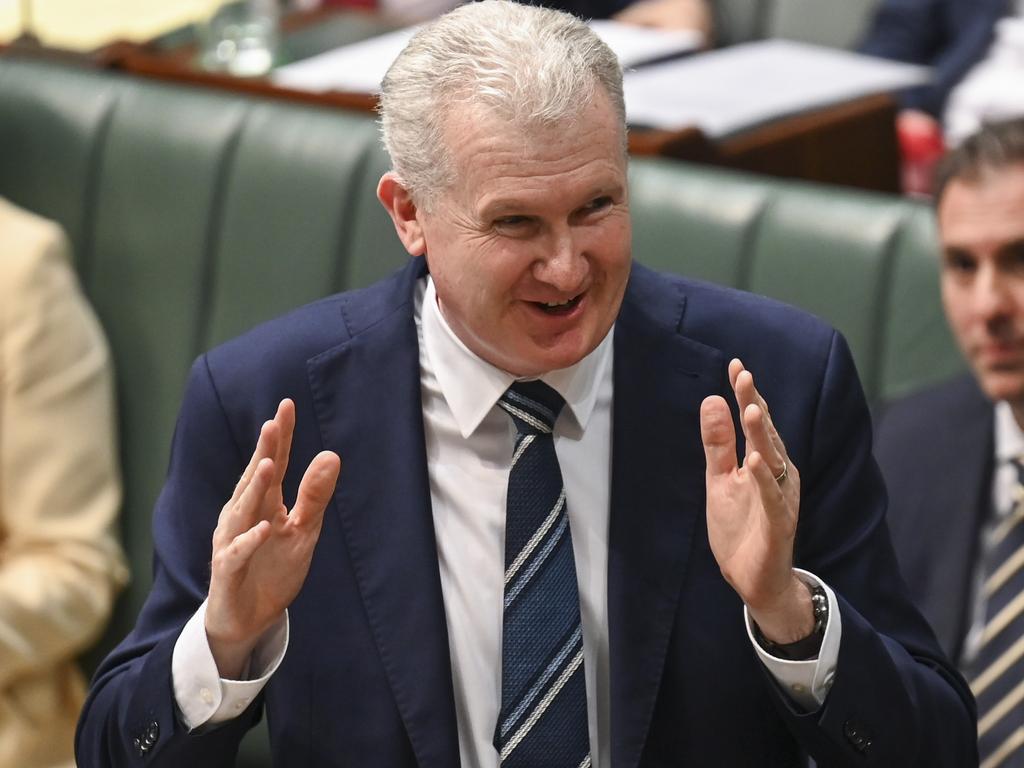New right to ignore boss after hours on the 2024 agenda
Permission to say no to “unreasonable” contact from your employer after hours is shaping as the next right for workers.

Tired of answering excessive work emails and phone calls from the boss after you’ve clocked off?
You may not have to do so for much longer if the “right to disconnect” becomes law next year, a move designed to combat the “availability creep” created by technology.
Permission to say no to “unreasonable” contact from your employer after hours is shaping as the next right for workers as the Albanese government and the Senate crossbench prepare to negotiate the next round of changes to Australia’s workplace laws.
Last week, the government legislated labour hire changes, new rights for union delegates and the criminalisation of wage theft, as well as less controversial changes, after striking a deal with the crossbench. But new casual employment provisions and minimum standards for gig workers will be subject to further negotiations next year.
The Greens, whose support the government needs to pass the legislation, have identified the right to disconnect as an “important issue”.
Workplace Relations Minister Tony Burke is open to the proposal. He says an employer should be able to call an employee outside of work hours “if they’re looking for somebody, if there’s a shift, someone’s sick, things like that … but this concept where some people are constantly expected to be answering emails, answering questions when they’re not being paid, I’ve got a bit of sympathy for the argument.”
A Senate select committee report last year found technology was putting pressure on workers to be available all the time – the so-called availability creep – to answer emails, calls or simply deal with their workload.
France pioneered the right to disconnect in 2017 and Spain, Portugal, Italy and Belgium are among almost 20 countries that have taken steps to allow workers to ignore bosses after hours.
Greens employment spokeswoman Barbara Pocock says the new right would allow for reasonable after-hours contact by an employer: “If a boss thinks you didn’t turn up for work and is worried about you, that’s not a problem, they are able to make contact. They may also want to notify a shift change.
“We see a role for the (Fair Work) Commission in helping to ensure arrangements are appropriate for different classes or occupational groups.”
She cites an example of unreasonable contact: “Being a nurse contacted eight times on a Sunday about what’s going on, on the ward, and whether you are available for emergency contact. What I hear from nurses is that is very disturbing to their weekend. It interrupts their rest and it affects the way they turn up for work on Monday morning.
“There are many other examples: people who are expected to turn up 15 minutes before their minimum wage shift in a retail operation and to set it up and at the end of the day close it down for 15 minutes without any payment in that period.”
Pocock says: “Public servants are expected to have a look at their email over the weekend and stay up to date by working into the evening so they are ready for the next morning. Where that happens on a repetitive basis, as it does for many public servants and professionals, there’s no payment, there’s no recognition.” She says there are two classes of workers in this debate, “those who have a formal allowance and recognition for it and others who are doing it because it’s just been a slow and gradual inclusion into their unpaid working time outside their formal hours of work”.
“People in those public sector jobs certainly feel like it’s a runaway epidemic of expectation that the technology makes you available,” Pocock says. “I think it has a real flow-on effect where a diligent teacher will want to respond so you get drawn in … you want to be good, you want to do your job well, but it’s an unreasonable demand and you’re not compensated for it.
“So the technology’s just changed so much and the classic industrial relations negotiation, which is over the wage effort bargain, time for money, has really been smashed by the technology.”
But Australian Chamber of Commerce and Industry chief executive Andrew McKellar says “punishing employers for connecting with employees after hours is not consistent with the expectations of our modern economy”, calling it “the antithesis of flexibility”.
University of Adelaide law professor Andrew Stewart says the right to disconnect should operate at two levels: as a general principle and then worked through the award system on an industry-by-industry basis to determine any exemptions; for example, for emergency workers. “There’s a lot of evidence about the health effects of not being able to get a true break from work, an awful lot of studies that I think show that there is a reason to intervene here,” he says.








To join the conversation, please log in. Don't have an account? Register
Join the conversation, you are commenting as Logout